TechRadar Verdict
Ignoring price, 18-core processor is a showstopper. Single- and multi- core performance is staggering and there’s even more potential in overclocking. It’s by far the king of CPUs.
Pros
- +
Exceptional performance
- +
Single-core results are incredible
- +
Mature chipset and platform
Cons
- -
Price, price, price.
- -
Monstrous overclocking power draw
- -
Still no soldering between dies and heatsink
Why you can trust TechRadar
For the first time in almost six years, the processor world lies in flux.
The two processor giants are finally battling again for our hard-earned dollars. With Ryzen aggressively redefining the CPU landscape and Threadripper demolishing the high-end desktop arena, Intel had respond in equal measure, and that solution was Core X processors and the X299 platform.
Although it was not as smooth a launch as big blue probably hoped for, we now have Intel’s most monstrous processor: the 18-core Intel Core i9-7980XE.
Cores: 18
Threads: 36
Base clock: 2.6GHz
Boost clock: 4.4GHz
L3 cache: 24.75MB
TDP: 165W
Pricing
The 18-core Intel Core i9-7980XE might trump the 16-core AMD Ryzen Threadripper 1950X with two more cores, but it also costs twice as much at $1,999 (about £1,480, AU$2,510). That’s right, Intel’s newest chip costs two times as much AMD’s top competitor priced at $999 (£899, AU$1,449).
While paying the full cost of a DIY PC for a processor might seem absurd, Intel has tested the limits of users' wallets since launching a $1,569 (£1,399, AU$1,723) 10-core Intel Core i7-6950X Broadwell-E part last year.
In light of Threadripper’s popularity, team blue happily committed to an 18-core desktop part not too dissimilar from its Xeon range of server products. But unlike Threadripper, you won't have to worry about switching to legacy or gaming modes; you get all the glitz, glamour and fuss-less functionality of Intel's desktop components.
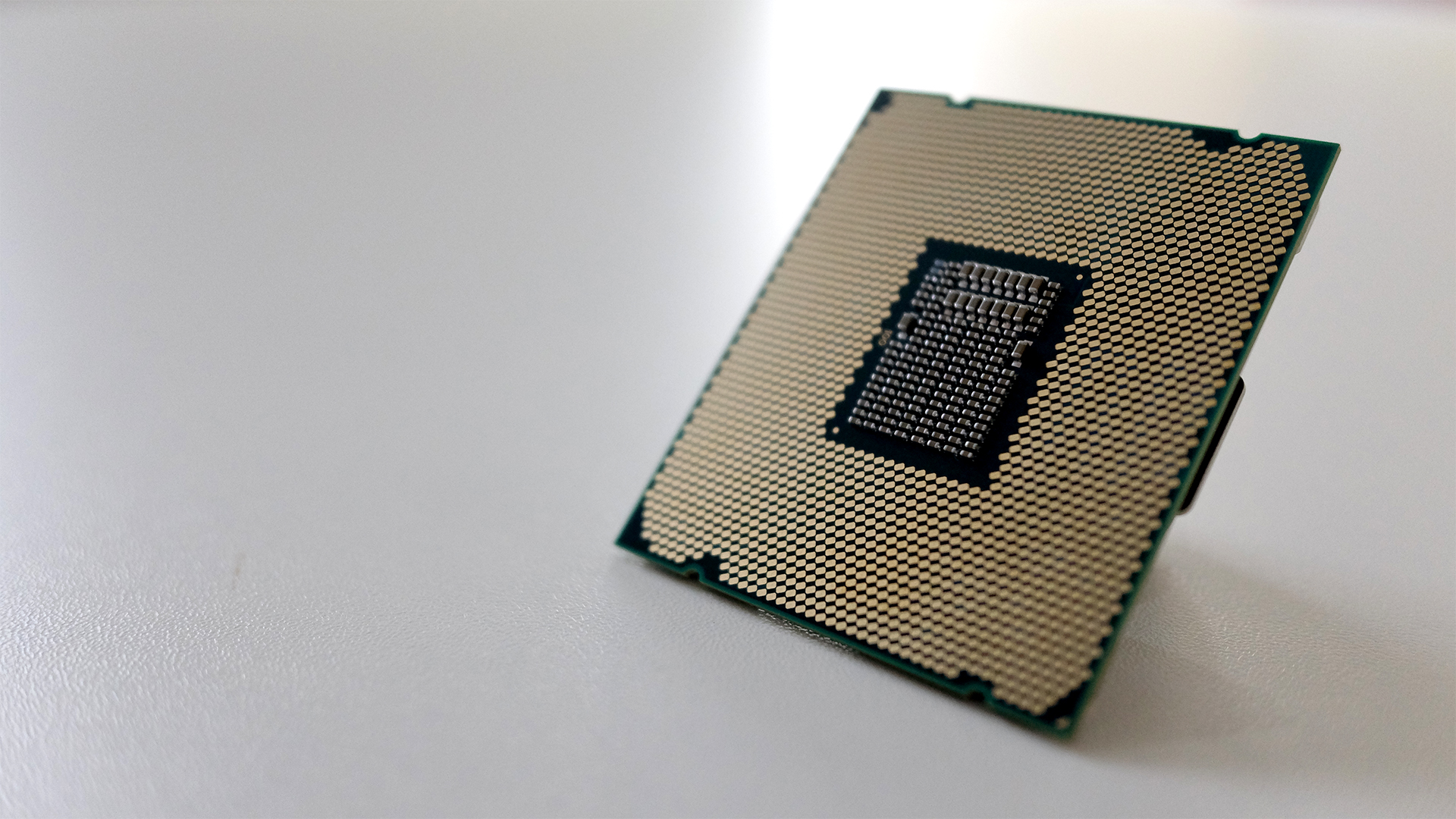
Features and chipset
In short, the Intel Core i9-7980XE is nothing if not monstrous with 18 cores and 36 threads squeezed into Intel’s tiny Skylake-X 14nm architecture. The processor also features 24.75 MB of Smart Cache, support for up to 44 PCIe 3.0 lanes, quad channel memory, and a 165W TDP.
Sign up for breaking news, reviews, opinion, top tech deals, and more.
More impressively, it also features a base clock frequency of 2.60 GHz that turbos up to 3.4 GHz across all 18 cores when under full load. This processor truly stretches the limits of Intel’s Skylake X architecture and amazingly it all fits in a package that’s more or less half the width of Ryzen Threadripper.
Performance
The Intel Core i9-7980XE demolished all of our benchmarks, scoring an incredible 3,331 points in CineBench’s multi-threaded benchmark (100 points less than an overclocked Threadripper 1950X), and a staggering 184 points in the single-threaded operation.
To put that into perspective, a Core i5-7600K, arguably the go-to processor for strong single core performance – which is crucial for gaming – scores five fewer points at 179.
This is due to two reasons. Firstly, the strength of Intel’s Skylake-X Core architecture, and secondly, the introduction of Turbo 3.0, which introduces the ability to overclock anywhere from one-to-four of the chip’s best cores up to 4.2GHz.
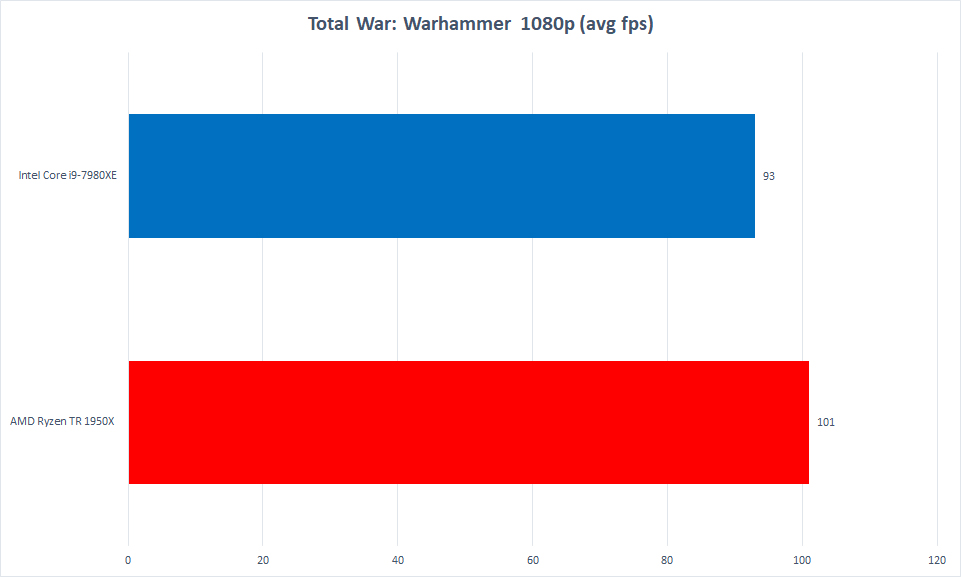
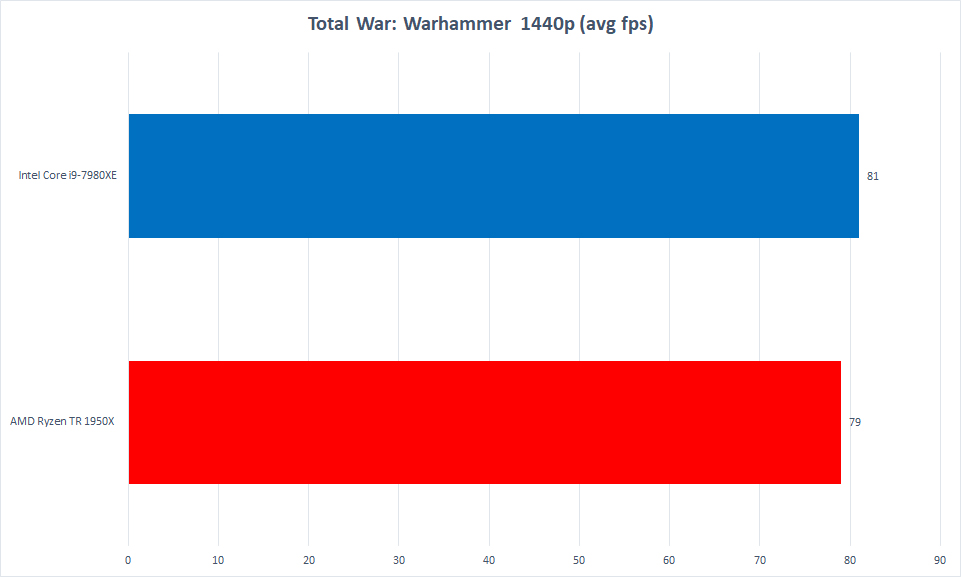
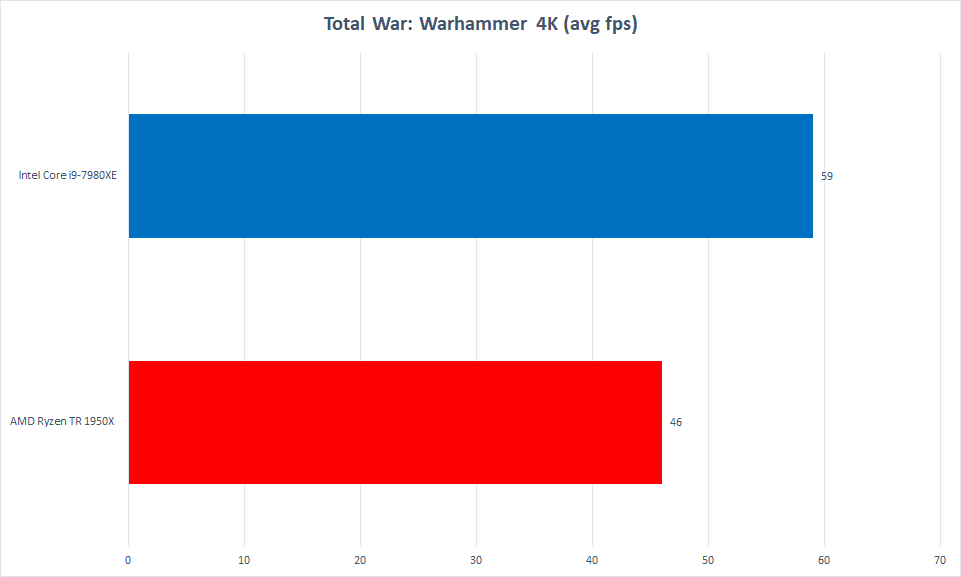
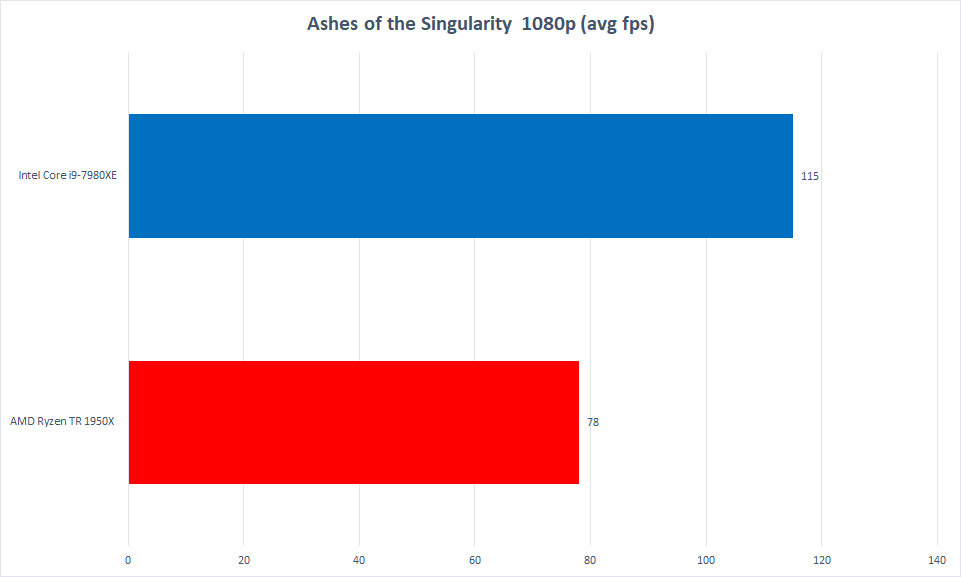
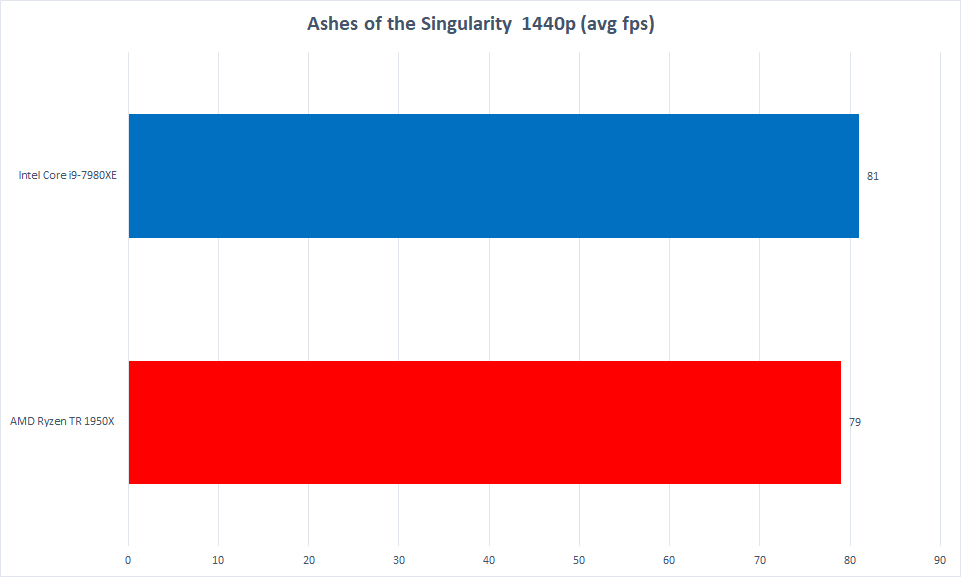
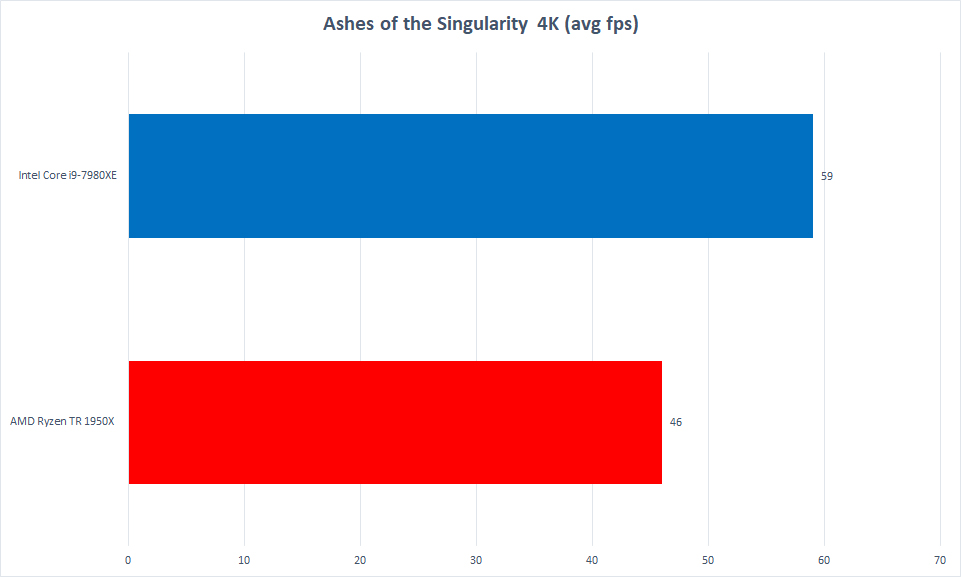
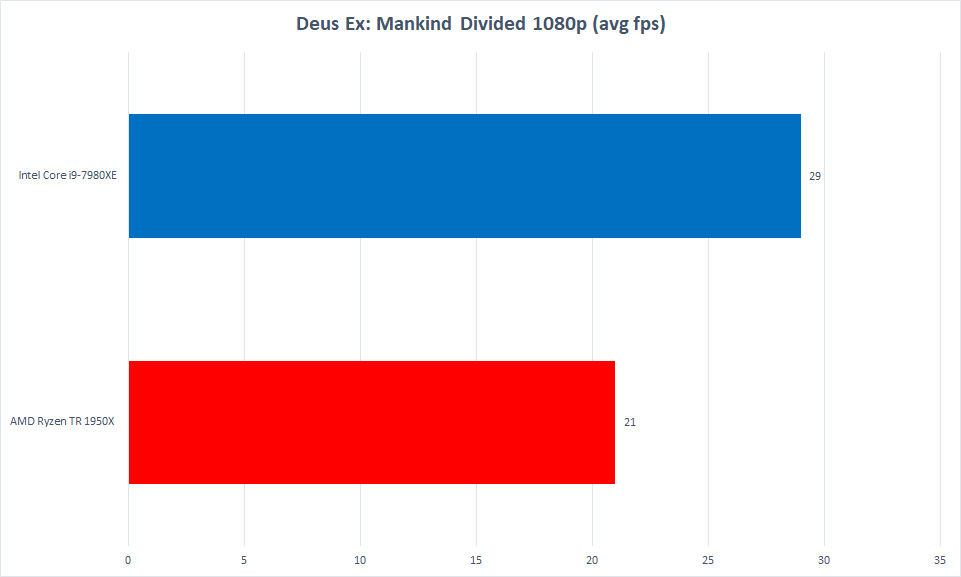
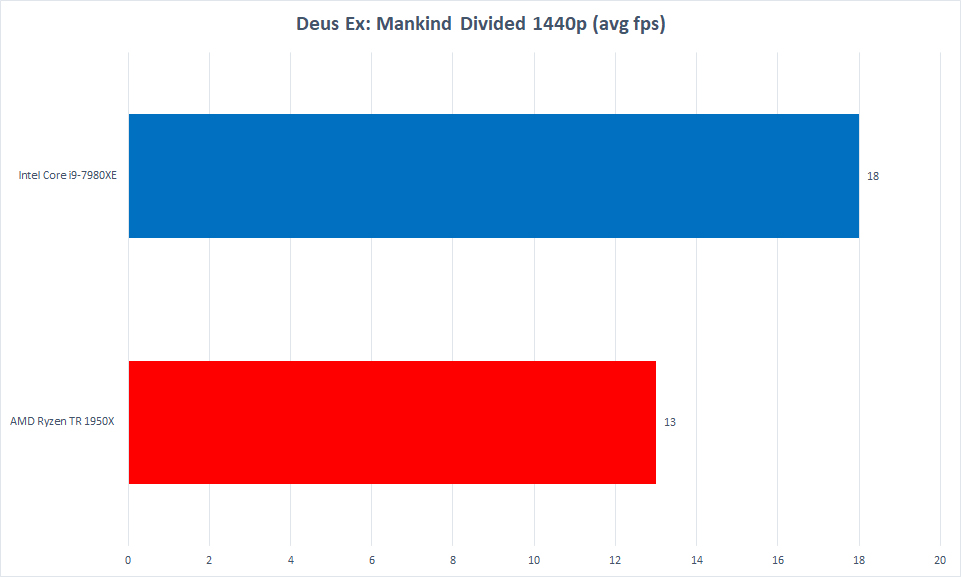
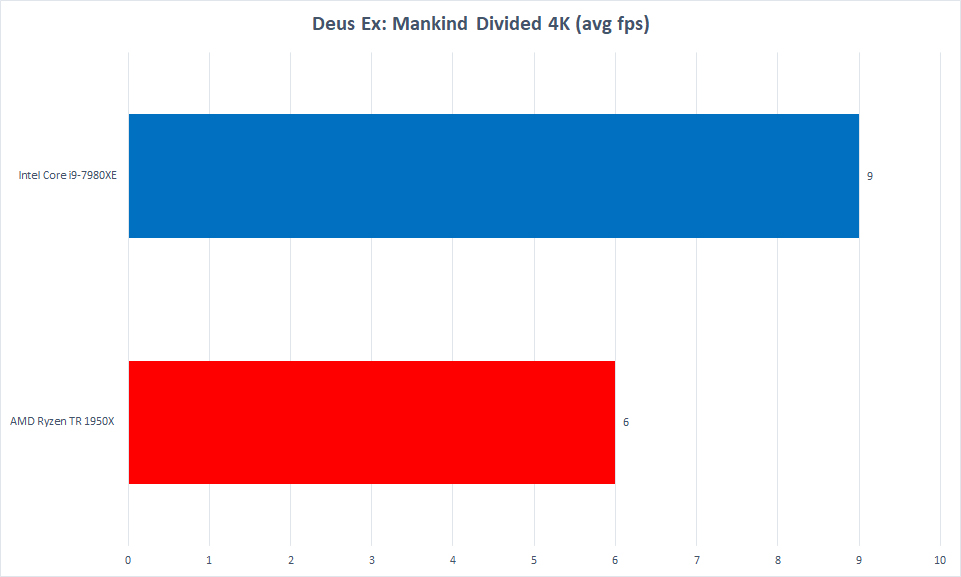
Overclocking and heat
It does all of this whilst remaining cool as well. By default, Intel does not ship any of its X-series processors with included coolers. The theory being that if you’re willing to invest two grand on a part this expensive, you’ll likely use an aftermarket cooler, to keep your lavish investment well chilled.
That said, under our NZXT Kraken X62 280mm AIO cooler, it was rare for it to peak past 55 degrees under load. Even whilst overclocked, we only ever saw it reach around 87 degrees at maximum.
Power draw is also fairly concrete, pulling a total of 258W under a single instance of Prime95’s burn test from the wall socket. That’s 13 fewer watts than AMD’s Threadripper 1950X.
It’s only after you start messing around with those multipliers and voltages that the Core i9-7980XE’s true potential is unlocked. Generally speaking, though, overclocking X299 parts has been troublesome because of two problems.
Firstly, VRMs thermally-throttling under Prime95 loads, forces processors to declock. Secondly, Intel still doesn’t solder its CPUs directly to the Integrated Heat Spreader (IHS) and instead uses inadequate thermal paste to do the job. Overall, it’s been challenging to get the most out of these chips.
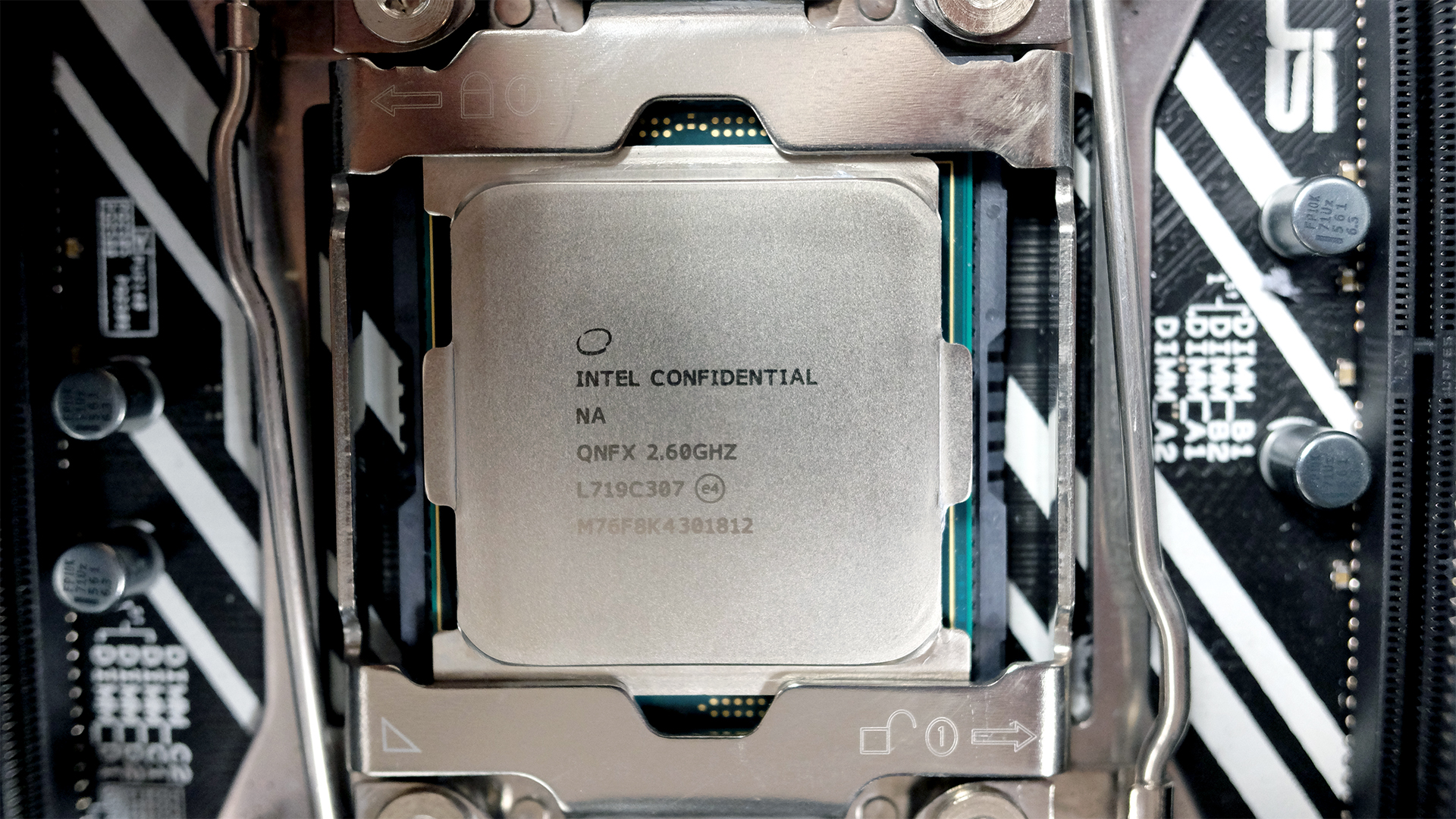
In our testing however, and without throttling the VRMs, we easily managed 4GHz across all 18 cores at 1.0V in the VCore. And after some more tweaking, disabling Intel’s Speedstep and changing the power phases to operate in Extreme mode, we achieved a final overclock of 4.4 GHz across all 18 cores, inputting 1.115V into the V Core.
The performance at this level is pure insanity.
CineBench R15 saw single core performance rock in at 195 points, the same level of single-core prowess as a Core i7-7700k. And the multi-core performance? 4,284 points.
That’s a 29-percent improvement, over stock speed. And with temperatures still merrily chortling along at 84-degrees Celsius (183-degrees Fahrenheit), it’s hard not to be impressed with all of this.
That said, this isn’t the end of the Core i9-7980XE’s potential. The only thing stopping us from going higher was the VRMs throttling down the chip to keep their temperatures below 107-degrees Celsius.
With a higher specced motherboard, and better cooling solutions for the VRM, we could easily see our sample hitting close to 4.8 GHz, potentially even higher, with very little effort.
Admittedly, power draw under load was hitting the 450W mark, without factoring any additional load from the GPU or other components. Power consumption aside, it’s hard not to be impressed with such ridiculous levels of multi-threaded prowess.

Final verdict
So then, the big one. The price. $1,999 (about £1,480, AU$2,510) for a processor is nothing short of insane. Intel needed to come out swinging with this one, especially given just how cost-effective Threadripper is in contrast. You are also losing out on those additional 20 PCIe lanes by opting for team blue as well.
Arguably, the performance metrics do help Intel’s case significantly. However, spending an additional grand for two more cores and an extra 25-percent performance is a hard sell. We also can't overlook how the company still refuses to use anything more than thermal paste to seat the IHS to those valuable processor dies.
At the end of the day, the Intel Core i9-7980XE is a processor unlike any other. Throw any application at it, and it’ll run as smooth as butter regardless of whether that’s 4K gaming or a five hour long video render in Premiere Pro.
If money’s not an option the Intel Core i9-7980XE is, by far, the king of the hill today. But for everyone else with a bit of sense attached to their bank account, it’s nothing more than a fevered dream. Incredible, but exceptionally hard for most to justify investing in.

Zak is one of TechRadar's multi-faceted freelance tech journalists. He's written for an absolute plethora of tech publications over the years and has worked for Techradar on and off since 2015. Most famously, Zak led Maximum PC as its Editor-in-Chief from 2020 through to the end of 2021, having worked his way up from Staff Writer. Zak currently writes for Maximum PC, TechRadar, PCGamesN, and Trusted Reviews. He also had a stint working as Corsair's Public Relations Specialist in the UK, which has given him a particularly good insight into the inner workings of larger companies in the industry. He left in 2023, coming back to journalism once more. When he's not building PCs, reviewing hardware, or gaming, you can often find Zak working at his local coffee shop as First Barista, or out in the Wye Valley shooting American Flat Bows.

